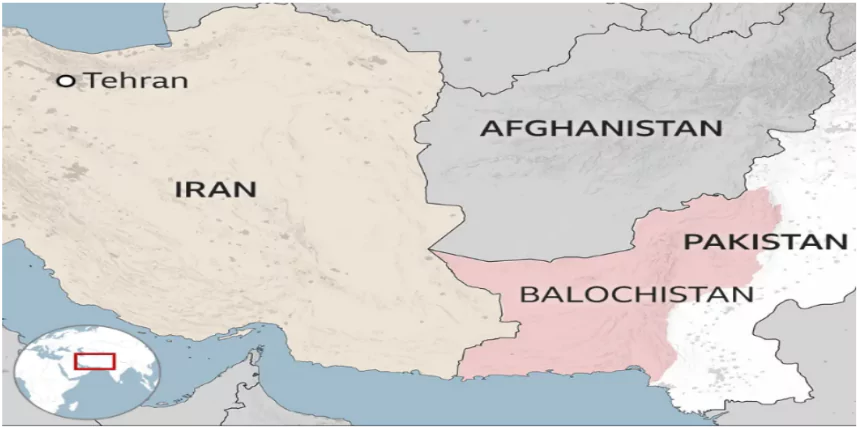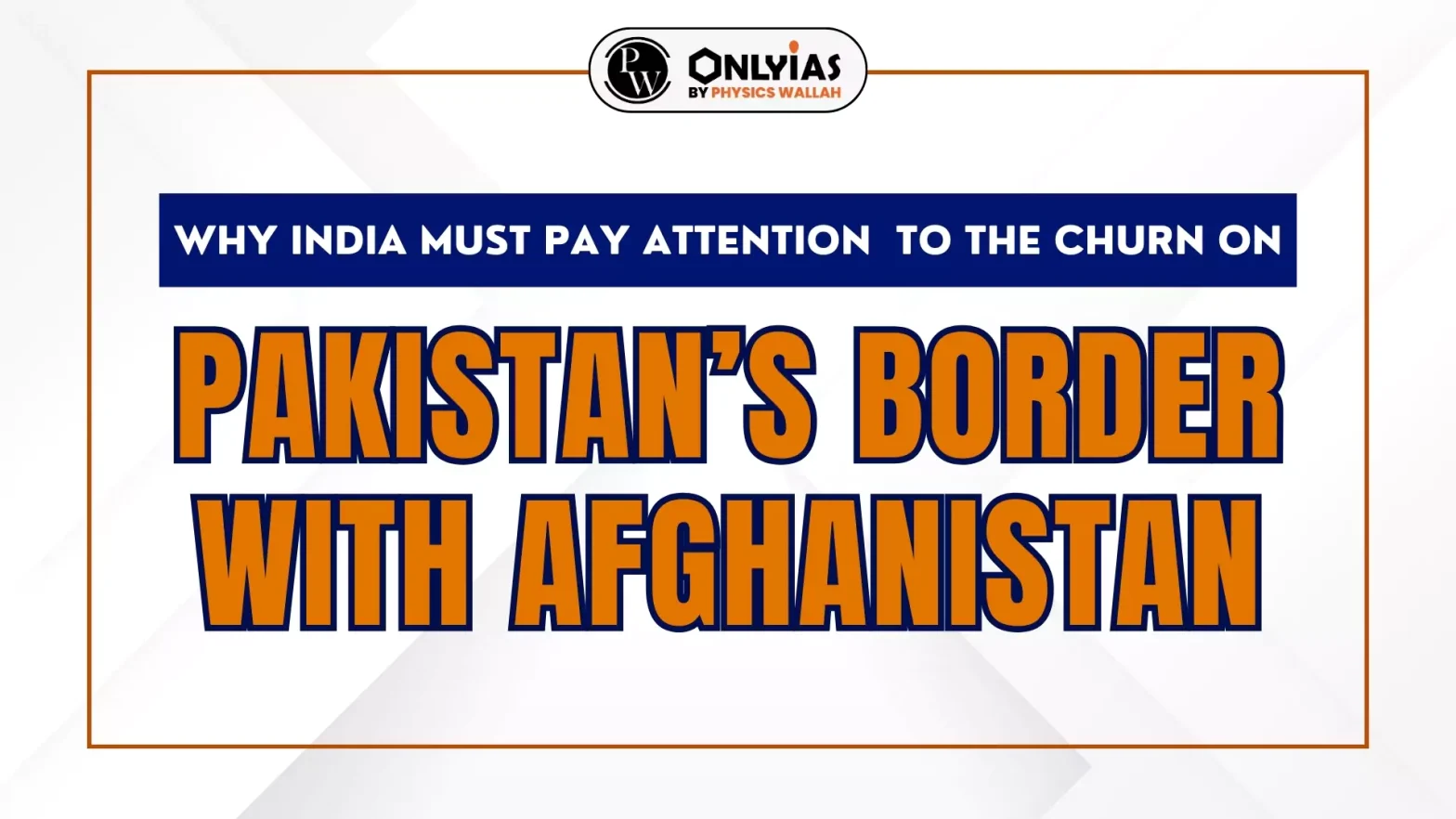Indian External Affairs Minister S Jaishankar’s recent visit to Islamabad for the Shanghai Cooperation Organisation summit has sparked speculation about future relations, particularly amid ongoing tensions along the Durand Line.
India-Pakistan Relations
- India-Pakistan relations are marked by structural rigidity, where superficial changes do not lead to meaningful normalisation.
- The relationship is deeply rooted in territorial disputes and political rivalries, causing it to remain largely “frozen.” Despite occasional diplomatic breakthroughs, major shifts have proven difficult to achieve.
Enroll now for UPSC Online Course
Impact of Activities on Pakistan’s Western Border
The geopolitical instability in Pakistan’s western borderlands, especially along the Durand Line with Afghanistan and Iran, is having far-reaching implications on both internal and regional dynamics, including its relationship with India.

- Taliban’s Return to Power in Afghanistan: Pakistan’s hope of controlling Afghanistan via the Taliban has backfired.
- The Taliban, asserting its independence, has reignited long-standing Pashtun grievances and is accused of supporting the Tehrik-e-Taliban Pakistan (TTP), which challenges Pakistan’s control over its Pashtun territories.
- Pashtun Tahafuz Movement (PTM): The PTM’s demands for the withdrawal of military forces, accountability for disappearances, and local control over natural resources in the Pashtun territories reflect a rising nationalism that Pakistan is struggling to contain.
- Baloch Nationalism: Rising violence in Balochistan, aimed at Chinese nationals and Punjabi settlers, adds another layer of instability to Pakistan’s western regions.
- The Baloch insurgency and opposition to Chinese investments (such as those related to the China-Pakistan Economic Corridor) have escalated tensions, diverting Pakistan’s attention from its eastern frontier with India.
- Instability in Iran: Tehran’s ongoing confrontations with the West and its regional adversaries have created a volatile environment, heightening fears of potential conflict between Iran and Israel, potentially drawing the U.S. into the fray and raising concerns about a Third World War.
The turbulence on Pakistan’s western front has thus weakened its political stability, reducing its ability to engage meaningfully with India. These internal pressures make Rawalpindi’s stance towards India more rigid, with the threat of internal fragmentation discouraging any major diplomatic concessions to New Delhi.
Emergence of the Taliban
- The Soviet invasion of Afghanistan in 1979 ignited a radical Islamic jihadi Movement, with support from the U.S. and Pakistan, leading to the Soviet withdrawal by the late 1980s.
- But Islamic militancy in the Subcontinent remained with Pakistan backing Afghan resistance groups.
- The emergence of the Taliban was a direct offshoot of this radical movement, as it capitalised on the power vacuum and instability in Afghanistan.
- Their alliance with al-Qaeda culminated in the September 2001 terror attacks, prompting the U.S. invasion of Afghanistan aimed at dismantling these militant networks.
- However, the prolonged conflict failed to eradicate violent extremism, ultimately resulting in the Taliban’s return to power in August 2021.
- This resurgence has exacerbated instability in Pakistan, with the spillover of extremist ideologies and militant violence continuing to threaten the country’s security and governance.
|
Check Out UPSC CSE Books From PW Store
Way Ahead
- Pakistan must learn from its past mistakes; supporting groups like the Taliban has led to the emergence of the Tehrik-e-Taliban Pakistan (TTP), creating internal strife.
- If Pakistan continues to support terrorism in India, it risks severe repercussions for itself in the future.
- To stabilise its bilateral relationship with India, Pakistan must address the deep-seated issues, particularly the growing unrest along its western border.
- Simultaneously, India must remain vigilant regarding these developments, as they are likely to shape the broader geopolitical landscape in South Asia in the years to come.
![]() 17 Oct 2024
17 Oct 2024

